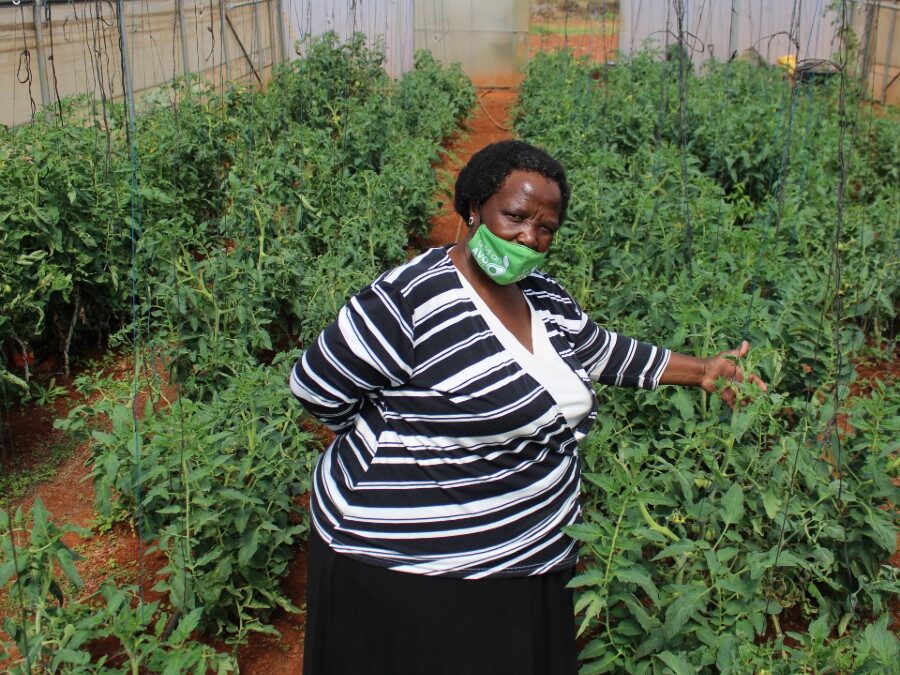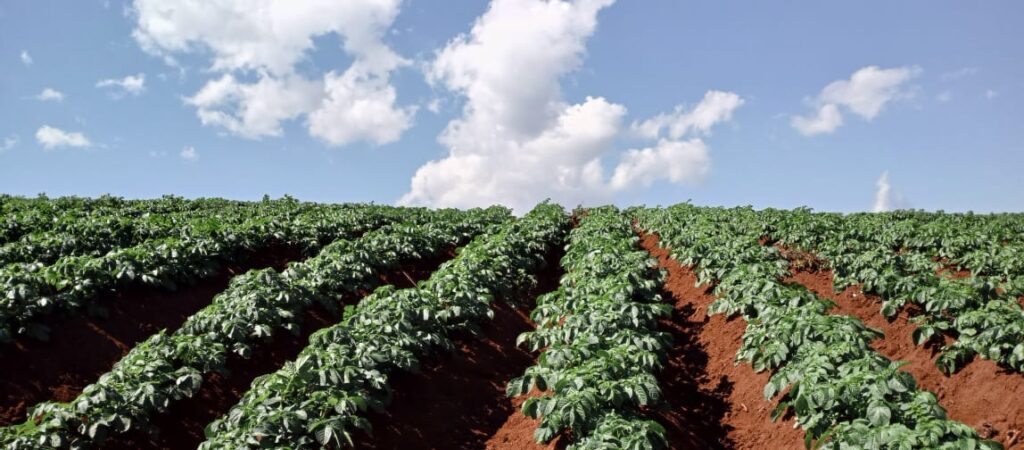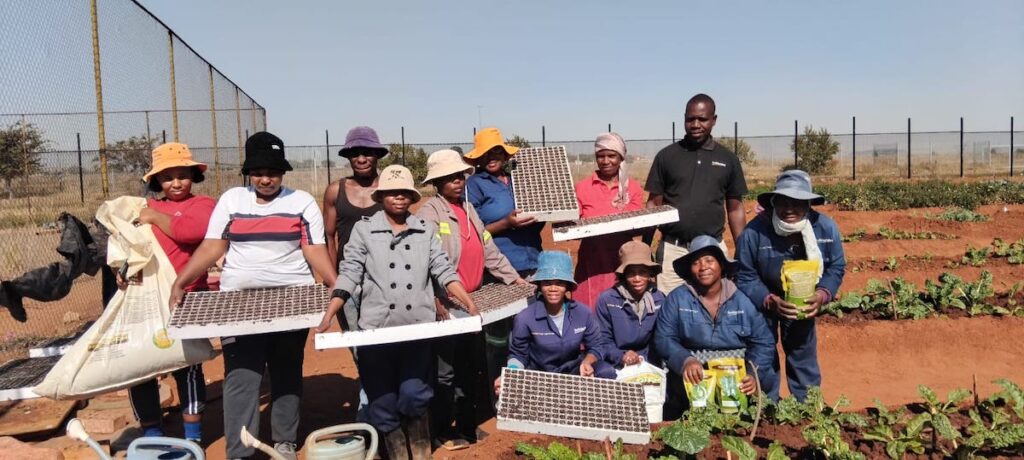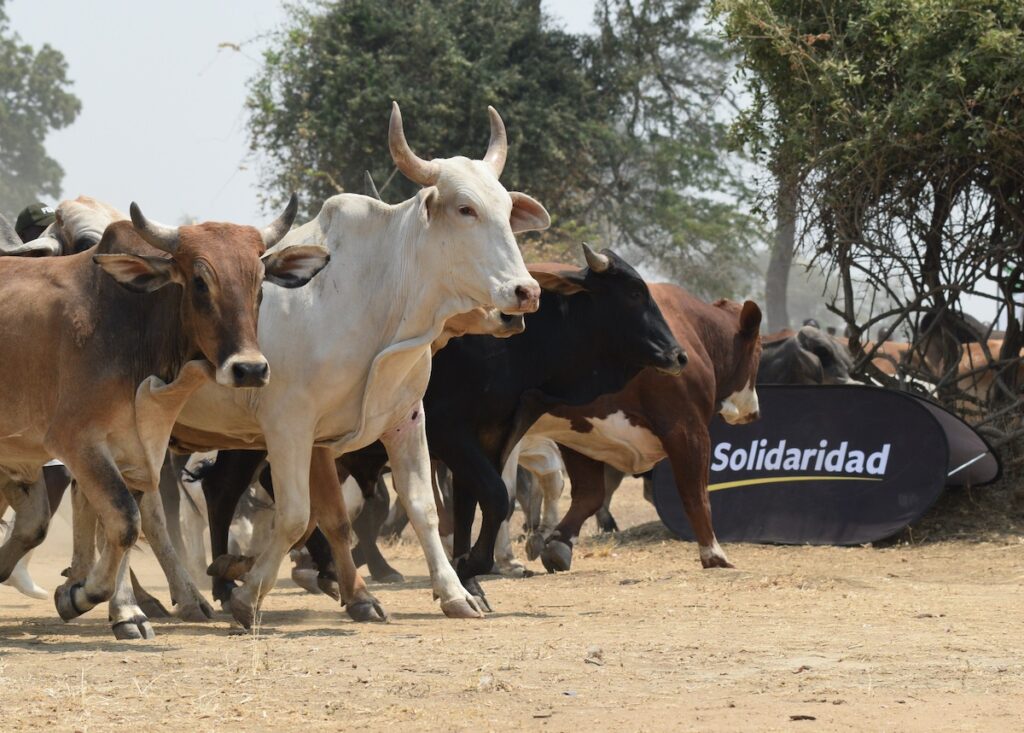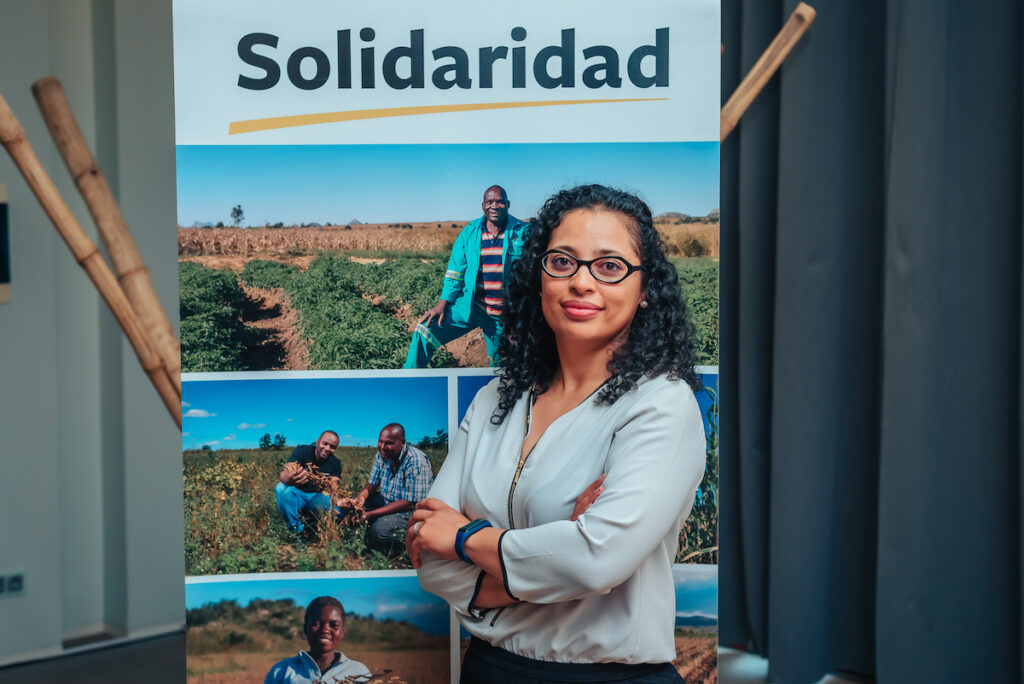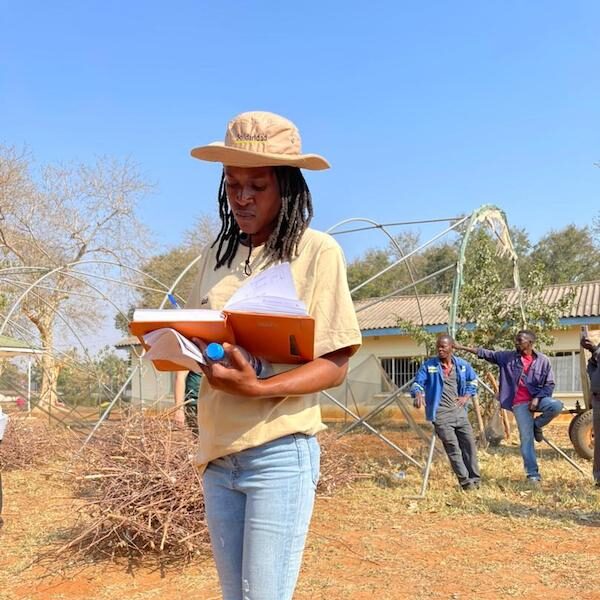In 2005, Gloria organized a committee that clustered women within her community according to their interests to pursue diverse business opportunities. The committee began writing proposals and applying for opportunities in different institutions to kickstart their farming business. The proposals took years to gain approval.
Small steps reap great rewards
While she waited for the process to run its course, Gloria started a food garden at a local school in Protea North. She would begin work at the food garden at 5 am and finish by 10 am to continue her sewing work. Once the process was complete, she registered Letlhare Farms, allowing her to secure her first client, Tara Hospital, in 2009.
In her second bidding, through her relationship with the Gauteng Department of Agriculture and Rural Development, she secured another contract with Tara Hospital and addtional contracts with 6 other hospitals. The new contracts grew Lethlare Farms from a food garden to two tunnels and 1-hectare operation, allowing her to harvest 250 boxes of tomatoes a week.
Developing skills is key to the business
While Gloria’s passion was great in the early years, she makes sure to mention that her staff’s great talent is the key to the farm’s success. She has hired two young employees, Setma Letswalo and Itumeleng Mafojane, to help with farm operations and identify growth opportunities.
Over the years, Gloria has capitalised on every opportunity to improve her own skills. She participated in different training programmes like our Farmer2Market Programme, which trains smallholder farmers to meet local food production standards and access diverse commercial markets through Local Gap Certification. The training looks at aspects such as hygiene, production processes, crop quality and traceability through stringent record-keeping to serve as a safe bridge from farm production to market consumption.
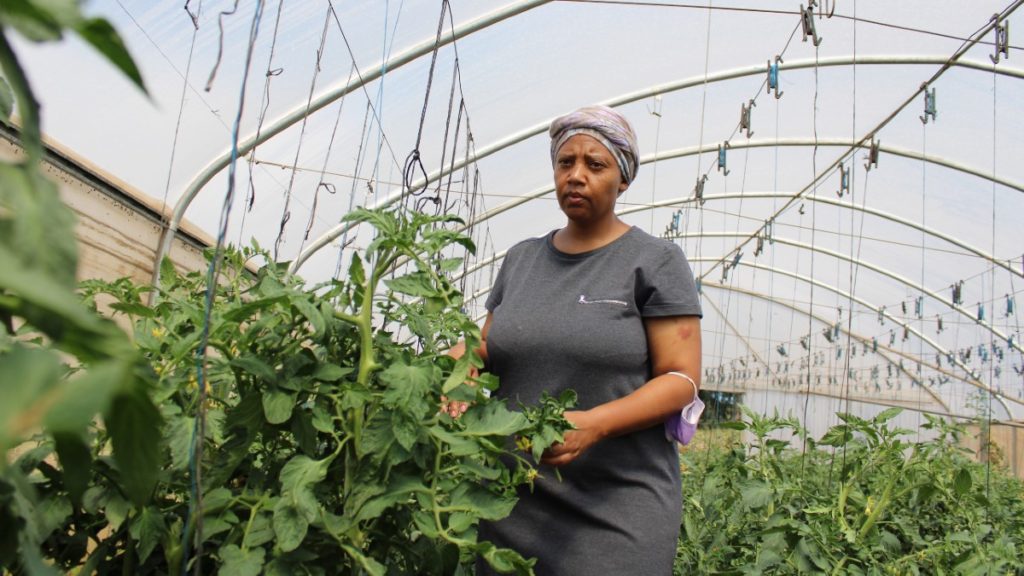
The payoffs of certification
Since certifying Letlhare Farm Local Gap, Gloria has been able to further grow her market by supplying Wimpy, SuperSpar, Caltex Fresh Stop and JFP Market. With all the clients satisfied with the quality of her supply, she has also secured a few contracts, including Super Spar Market from Kenilworth. This has fueled her aspirations to gain more commercial clients, especially within the retail sector. To maximize business growth, she has invested in a small truck so that all business logistics are serviced in-house.
Opportunities and challenges for expansion
Gloria notes that her immediate area of need is a packhouse facility and cold storage, which will be key in handling large crop quantities. She also aspires to access more land to ascertain consistent supply and crop diversification. Her current challenge within the co-op where her two tunnels are located is the breakdown of water infrastructure, which sometimes occurs as her crop is in the ground, resulting in great loss. This is of the many reasons she is actively pursuing growing her hectarage.
Gloria’s story is proof that with the right support, women can contribute to closing the gender gap in agriculture, paving the way for more inclusive economies. Her advice to other farmers who are just starting:
Perseverance is key. Also, make sure that you love what you do. If there is any training available to grow your capacity, expand your knowledge, take it. Opportunities are found amongst like-minded individuals.

